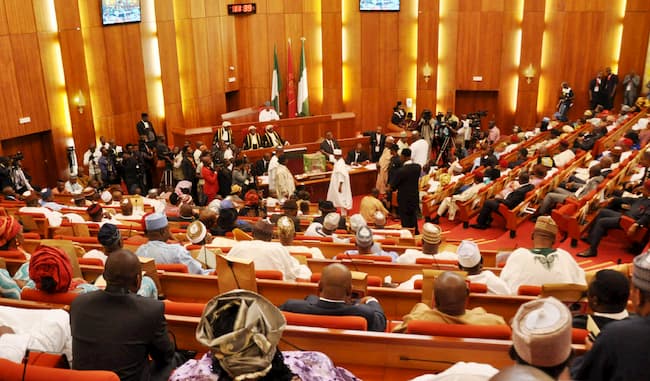The Nigerian Senate has issued a cautionary statement urging the executive arm of the government to refrain from expanding the budget through a supplementary budget. Instead, the Senate suggests utilizing the anticipated excess savings resulting from the recent depreciation of the naira to cover deficits.
The warning comes in light of the depreciation of the local currency against the United States dollar, soaring from N900/$ to over 1,500/$ following measures by the Central Bank of Nigeria to unify exchange rates across parallel and official markets.
In December, the National Assembly adjusted the 2024 budget benchmark exchange rate from N750/dollar to N800/dollar, taking into account prevailing market rates. Senator Solomon Adeola, Chairman of the Senate Committee on Appropriation, highlighted the rationale behind this adjustment, citing the gap between budgeted and actual exchange rates, which necessitated bridging financial disparities.
However, with the naira’s depreciation exceeding projections, the Senate cautions against enlarging the budget, expressing concerns over exacerbating inflationary pressures. Instead, the Senate recommends channeling excess savings towards reducing the need for additional borrowing to fund budget shortfalls.
Senator Tokunbo Abiru, Chairman of the Senate Committee on Banking, Insurance, and other Financial Institutions, stressed the importance of prudent fiscal management. He emphasized the necessity of leveraging budgetary gains to mitigate inflationary pressures and moderate reliance on borrowing.
Abiru highlighted the importance of employing average exchange rates rather than spot rates in budgetary considerations, cautioning against premature budget revisions amid ongoing exchange rate volatility.
Echoing similar sentiments, Senator Ali Ndume, Deputy Chairman of the Senate Committee on Appropriation, underscored the positive fiscal implications of the depreciated naira for Nigeria’s budgetary framework. Ndume emphasized the surplus created by the gap between budgeted and actual exchange rates, suggesting that the country stands to benefit from increased revenue in dollar terms.
Ndume addressed concerns about rising food prices, attributing the escalation to opportunistic behavior rather than genuine supply-demand dynamics. He emphasized the need to address foreign exchange volatility while acknowledging the resilience of local food production in the face of economic challenges.
Overall, the Senate’s stance underscores the importance of fiscal prudence and strategic resource management in navigating economic uncertainties arising from currency depreciation.












